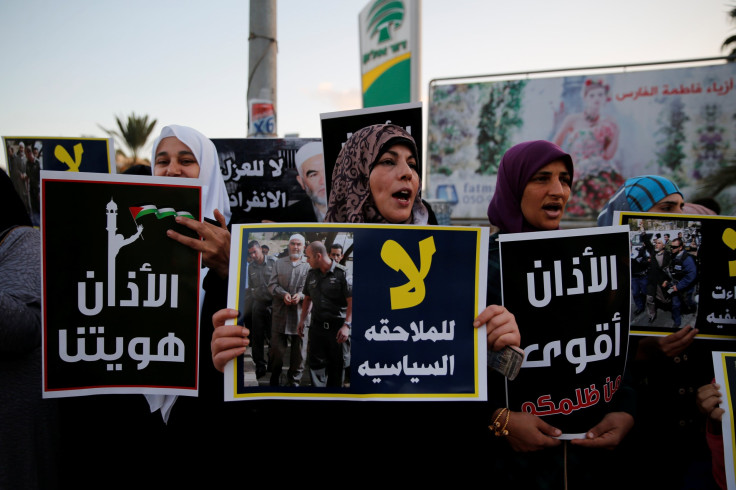Israel Palestine Conflict: Muslims, Jews, Christians Unite To Protest Law Against Islamic Call To Prayer

Muslim, Jewish and Christian communities gathered Monday in the West Bank city of Nablus to protest an Israeli-imposed ban on the Islamic call to prayer.
Demonstrators in the Palestinian city's main square performed the adhan, the Islamic call to prayer performed five times daily from the loudspeakers of a mosque. On Nov. 13, the Israeli parliament proposed a bill that would limit the use of megaphones at the mosques within Israel. The bill was backed by Israeli Prime Minister Benjamin Netanyahu and was met with widespread criticism from all three major faith communities.
The Bishop of the Catholic Church in Nablus Yousef Sa’ada called the law a “sign of the [Israeli] occupation’s ethical, moral and political bankruptcy.”
“The Palestinian followers of all religions are united against this [Israeli] bill. This is a proof that Israel has started the stage of collapse and it is fading,” he added, according to Middle East Monitor.
The bill was proposed by far-right Jewish Home Party member of parliament and former Israeli military commander Moti Yogev, who claimed that it would reduce "noise pollution." He argued that "hundreds of thousands of citizens suffer habitually" from the calls to prayer, the first of which occurs at dawn before sunrise. The restriction was approved by lawmakers and will be read three times before being introduced as law. The move was met with massive protests across Palestine and Israel.
“We will not stop the muezzin [the person who leads the call to prayer] and will not stop our prayers,” Adel Badir, mayor of the Arab-majority city of Kafr Qasim in Israel, said, according the Times of Israel.
“Our right to a muezzin and to prayer does not derive from any law, it is a basic right, like the right to life, or the right to live under a roof. It is an inseparable part of our right to exist and to pray,” he added.
The Islamic call to prayer can be heard from mosque minarets in cities around the world with large Muslim populations. Officials in some countries such as Indonesia, Switzerland and the U.S. have moved to set limits on the use of loudspeakers to broadcast the call to prayer.
© Copyright IBTimes 2024. All rights reserved.






















